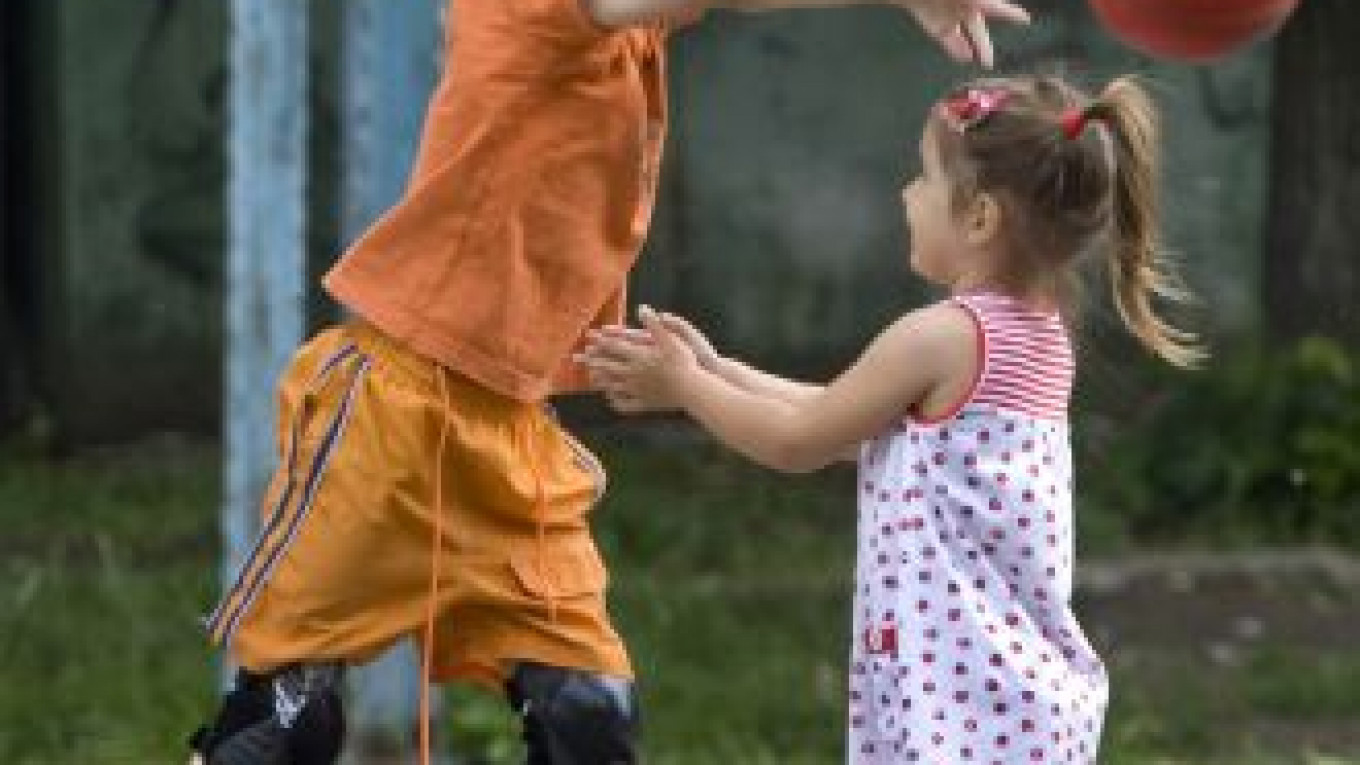When director Nikolai Lebedev decided to film part of "Legend No. 17," a well-received biopic about the legendary Soviet hockey player Valery Kharlamov, at an ice rink in Elektrostal in the Moscow region, his choice was not a flattering one for the area's sports officials.
Without any touch-ups or makeover, the ice rink was able to serve as the setting of Kharlamov's 1967-68 season in Zvezda, a hockey club in the remote city of Chebarkul south of the Ural mountains.
Now, local sports authorities have woken up to the situation. The Moscow region will spend 6 billion rubles ($181 million) on 50 new sports complexes, the region's Sports Minister Oleg Zholobov said Friday.
But the upgrade comes with a twist: In contrast to the many other large-scale sports facilities being built across Russia in preparation for international competitions, these projects will be designated specifically for public, rather than professional, use.
"There has never been such a program in the Moscow region, and maybe not even the country as a whole," Zholobov said. "We are spending these 6 billion rubles not for competition venues, such as with the Universiade in Kazan or the World Cup, but for mass sport."
None of the planned facilities will have more than 100 seats for spectators.
The Moscow region currently has 27 swimming pools, 16 multifunctional fitness complexes and seven indoor ice rinks, which the minister said satisfies just 14.5 percent of the local population's needs. According to estimates, 1.5 million residents currently take part in sports. Acting Governor Andrei Vorobyov has ordered that this number be increased by 700,000 within five years.
Construction of the new facilities is slated to begin at the end of 2013 or early 2014.
While building costs will fall on the regional government, the municipalities will have to handle the large maintenance costs of their new venues themselves, Zholobov said, and these payments will not be easy to make.
While not as expensive as professional venues — the annual maintenance cost of a speed skating center in Kolomna, for example, is 370 million rubles — it will cost municipalities 20 to 25 million rubles per year to keep each recreational ice rink and swimming pool in good repair.
In the case of swimming pools, entrance fees should be able to cover maintenance costs, Zholobov said. But this is the most lucrative type of sports venue.
Four private companies are interested in investing in the Moscow region's sports facilities, said Alexei Azarov, head of the sports facilities department in the region's Sports Ministry.
One of these is planning to spend 300 million rubles building a 6,000-square-meter retail and sports complex, half of which would be used for commercial purposes and the other half for fitness facilities. The projected break-even period on the project is 10 years.
Investor enthusiasm in such long-term investment ventures is cool. One initiative to drum up interest would be for the sports ministry to guarantee paid use of facilities built with private funds by state institutions, Zholobov said.
"We are ready to welcome investors anywhere," he added. "Maybe they're waiting until the elections are over, just thinking things over, or maybe what we need is for one investor to get into the sphere and set an example. Good examples are contagious."
Contact the author at e.smirnova@imedia.ru
A Message from The Moscow Times:
Dear readers,
We are facing unprecedented challenges. Russia's Prosecutor General's Office has designated The Moscow Times as an "undesirable" organization, criminalizing our work and putting our staff at risk of prosecution. This follows our earlier unjust labeling as a "foreign agent."
These actions are direct attempts to silence independent journalism in Russia. The authorities claim our work "discredits the decisions of the Russian leadership." We see things differently: we strive to provide accurate, unbiased reporting on Russia.
We, the journalists of The Moscow Times, refuse to be silenced. But to continue our work, we need your help.
Your support, no matter how small, makes a world of difference. If you can, please support us monthly starting from just $2. It's quick to set up, and every contribution makes a significant impact.
By supporting The Moscow Times, you're defending open, independent journalism in the face of repression. Thank you for standing with us.
Remind me later.






